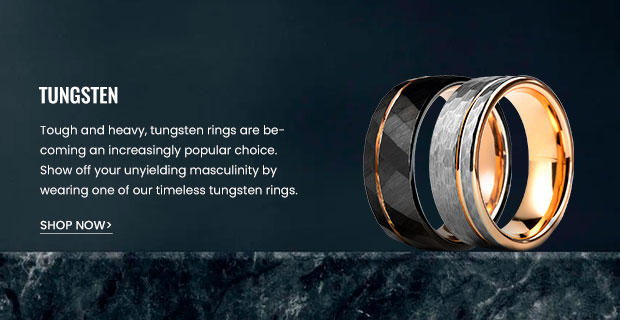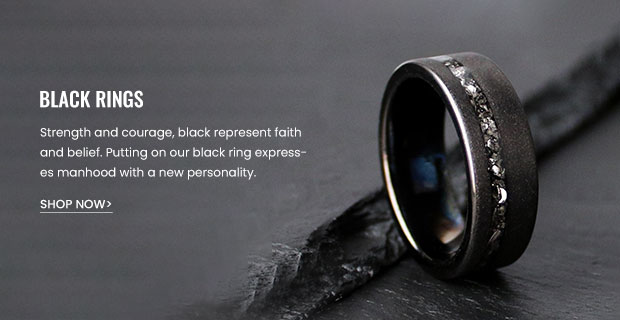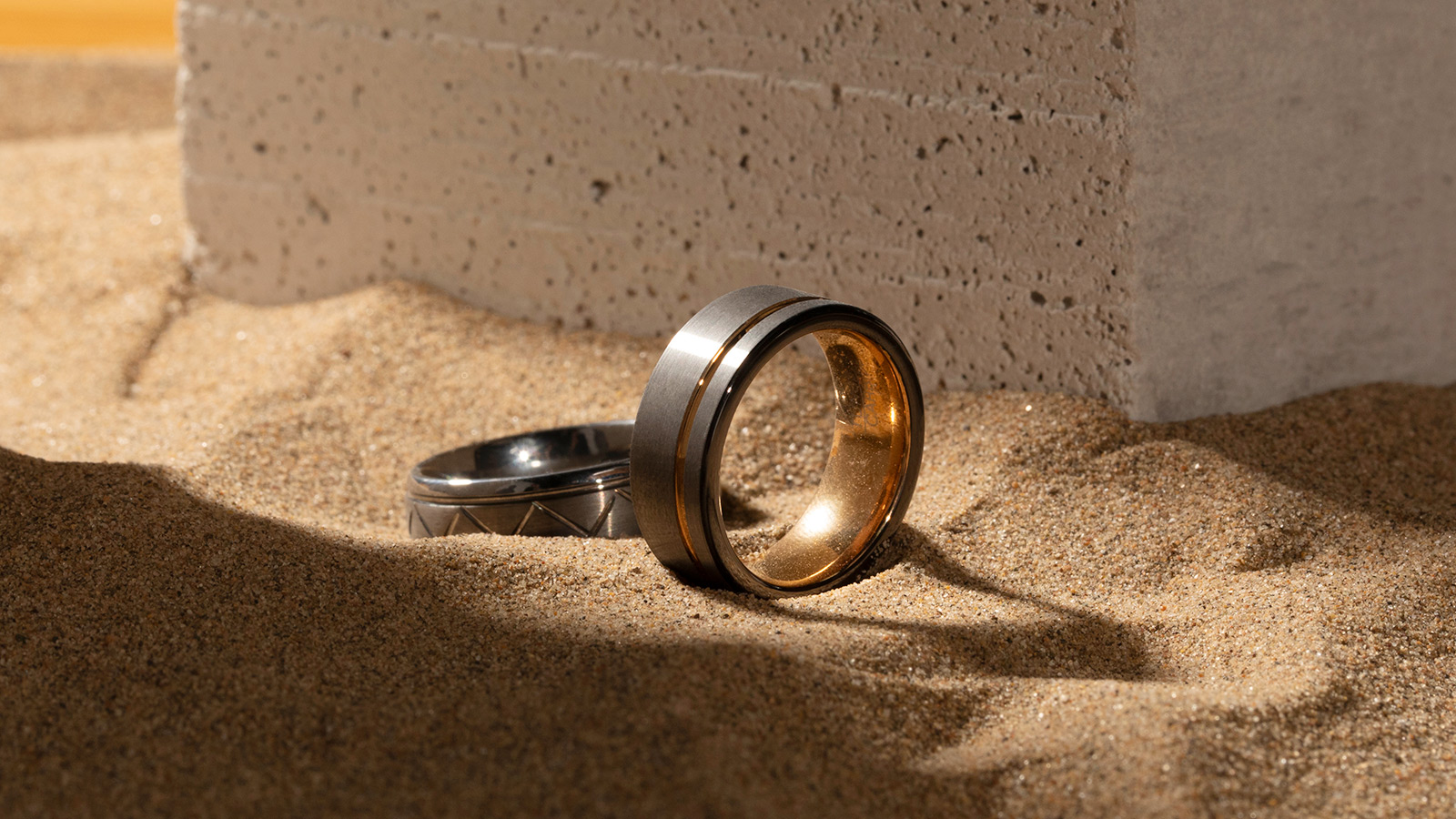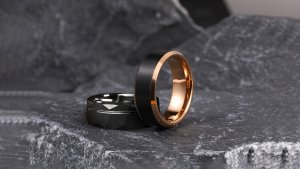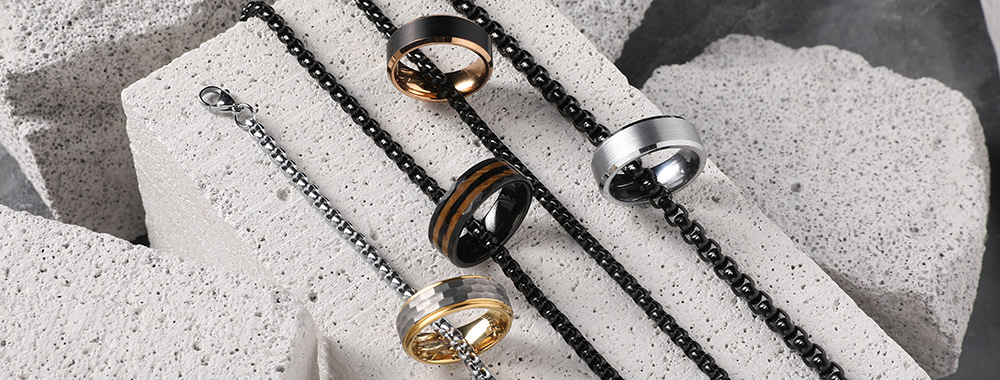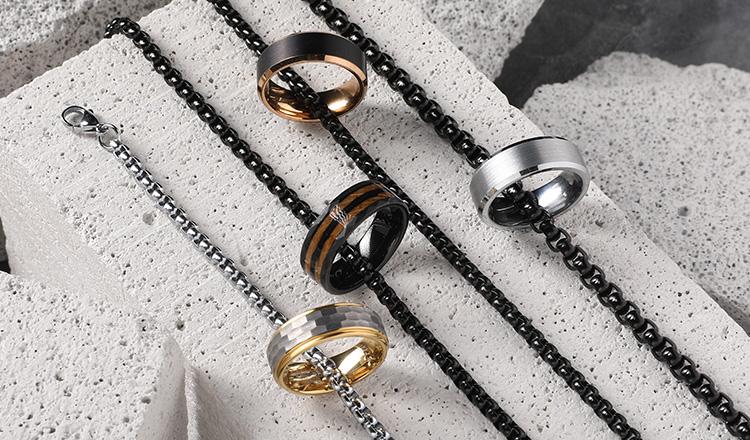While some might think a men’s ring is just a men’s ring, the reality is that different jobs come with unique demands and considerations. Your career not only influences what type of ring will be practical but also how it represents you in your professional environment. Let’s explore how different professions influence ring choices and what factors you should consider for your specific line of work.
General Ring Selection Tips for All Professions
Before we talk about advice for specific jobs, let’s cover some universal guidelines that every man should consider, no matter what they do for a living.
Always Prioritize Safety Over Style
Go for designs that won’t easily catch on equipment or materials in your work environment or daily activities. For example, rings with intricate designs, raised stones, or sharp edges may become snagged on clothing or machinery, leading to accidents.
Choose Ergonomic Designs for Comfort
A well-fitting ring is crucial, especially if you plan to wear it daily. A ring that is too loose may slip off, increasing the risk of loss, while one that is too tight can cause discomfort or restrict circulation.
Comply with Your Workplace’s Jewelry Code
Many workplaces have specific policies regarding jewelry for safety reasons.Wearing rings is often not allowed in fields like manufacturing, healthcare, and building because they could get caught in machines or hurt someone. Before buying a ring for work, you should always check your company’s dress code or consult with HR.
Select Rings for Easy Maintenance and Cleaning
Upkeep requirements for different products are not all the same. Make sure the ring you pick fits the way you live and clean. As an example, some metals rust easily and need to be polished often, while other ring materials are easy to clean with water and soap.
Now we’ve understood the basic principles of ring selection, let’s take a closer look at the specific requirements of different professions for ring selection.
Manual Labor & Trades
Working in construction, manufacturing, or other hands-on trades requires special attention to ring safety.
- Traditional metal rings can be dangerous around machinery, as they might catch or conduct electricity. That’s why many workers opt for silicone rings, which break under pressure rather than risking finger injury.
- Tungsten rings are another excellent choice for its durability and scratch resistance, though it should be avoided around electrical work.
- Low-profile designs are essential to prevent snagging, and some workers choose to wear their rings on chains around their neck during work hours.
- Many trade workers maintain two rings: a durable one for work and a traditional metal ring for special occasions.
Office & Corporate Professionals
In corporate settings, classic metals like gold and platinum remain popular choices, projecting sophistication and success without being flashy. Yellow gold and platinum in simple designs work well in most business environments.
- Consider choosing a ring width that complements your hand size and matches other accessories like your watch.
- Avoid overly ornate designs or excessive stones, as these might appear too casual or flashy for formal business settings.
- A subtle brushed finish can help minimize scratches while maintaining a professional appearance.
Healthcare Workers
Medical professionals need rings that can withstand frequent hand washing and sanitizing. Smooth, non-porous surfaces are essential to prevent bacterial growth, and the ring should be comfortable under medical gloves. Some facilities have specific policies about rings, and many healthcare workers remove their rings during procedures.
- Healthcare workers often choose platinum or high-karat gold for their resistance to chemicals and ease of cleaning.
- Consider a simple design that’s easy to clean and won’t trap substances.
- Some opt for a pendant ring worn around the neck during work hours.
Creative Professionals
Creative professionals often have more flexibility in their ring choices, allowing for unique materials and designs.
- Mixed Metals: Why settle for one metal when you can combine several? Rings made from mixed metals—like gold, tungsten, and rose gold—can create a stunning visual effect that stands out.
- Unconventional Materials: Consider materials like wood, ceramic, or even resin. Wooden rings, for example, can offer a warm, organic feel, making it perfect for nature-inspired designs. Ceramic rings can be lightweight yet durable, often coming in a range of vibrant colors and patterns that can catch the eye.
- Custom Designs: If you have a specific vision in mind, don’t hesitate to explore custom designs. Collaborating with a jeweler to create a one-of-a-kind piece can result in a ring that perfectly encapsulates your artistic style.
However, functionality shouldn’t be completely sacrificed for style. If you work with digital equipment or delicate materials, ensure your ring won’t scratch or damage your tools. For instance, a ring with sharp edges or raised stones might inadvertently cause harm to screens or fine fabrics.
Outdoor & Sports Professionals
Those who work outdoors or in sports-related fields need rings that can withstand the elements and physical activity while maintaining their appearance.
Weather-resistant materials are crucial for outdoor professionals. Titanium and stainless steel are excellent choices as they resist corrosion and maintain their appearance despite exposure to sun, rain, or salt water. The ring should be comfortable during movement and not interfere with equipment handling.
How to Care for Your Ring Based on Your Profession
Different work environments require tailored approaches to ring maintenance. Here’s how to care for your rings based on your profession:
Establish a Cleaning Routine
| Profession | Frequency | Method | Considerations |
| Office Workers | Weekly | – Clean with soap and warm water. – Use a soft toothbrush. – Dry with a lint-free cloth. | Focus on polishing to maintain shine. |
| Healthcare Workers | Daily | – Wash with soap and water after each shift. – Rinse and dry completely. | Use a soft brush for intricate designs. |
| Manual Labor/Hands-On Professions | After each use or daily | – Remove during dirty tasks. – Wipe with water and a soft cloth. | Inspect for wear, especially gemstones. |
Create a Consistent Storage Location.
Pick a place to store your ring when you don’t need it. It could be a small dish on your desk, a jewelry box, or a travel case. This consistency will make it less likely that you’ll lose it. You might want to buy a padded travel case or a small bag that is made just for jewelry. This keeps your ring from getting scratched or broken, which is helpful if you’re always on the go.
Conduct Regular Maintenance Checks
Set up regular times to check your ring for damage like lost stones, scratches, or color changes through wear.Every six months to a year, consider taking it to a jeweler for a skilled cleaning and check-up. They can make sure the metal is still in good shape and the settings are safe.
Have Backup Rings for High-Risk Activities
If your profession involves high-risk activities (like sports, physical labor, or working with machinery), consider having a few backup rings made from safer materials (like silicone) and be proactive about removing your ring during high-risk tasks.
Find a Men’s Ring That Fits Your Professional Style
A perfect ring should feel like a natural part of your business personality. Spend some time reading up on different styles, and think about how your choice will function in your specific work environment. You can find a ring that fits both your working and personal style tastes if you give it some thought.

